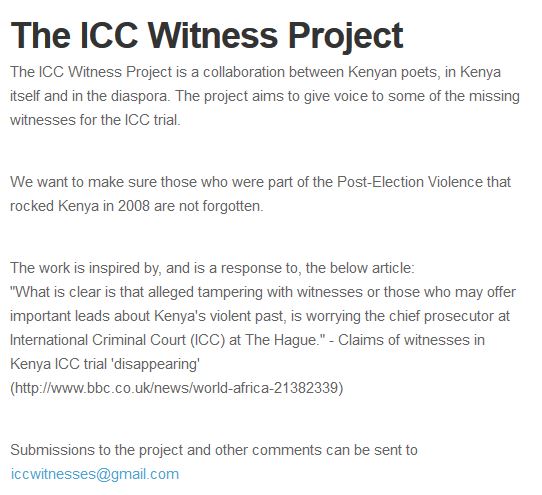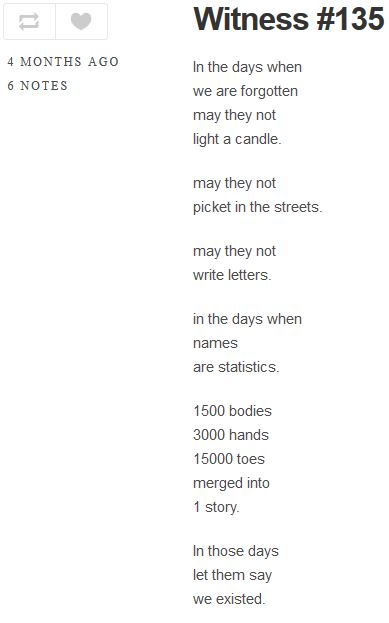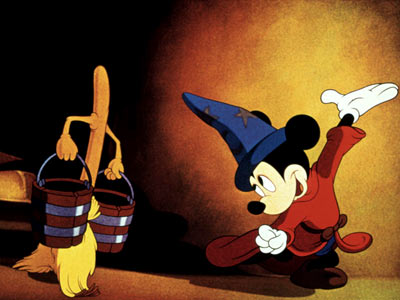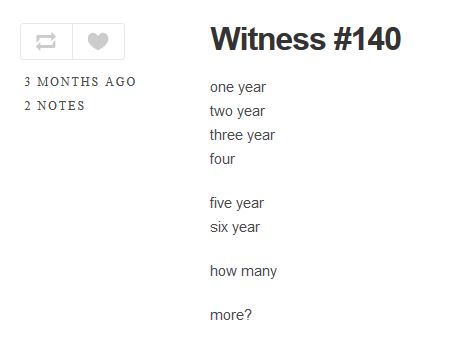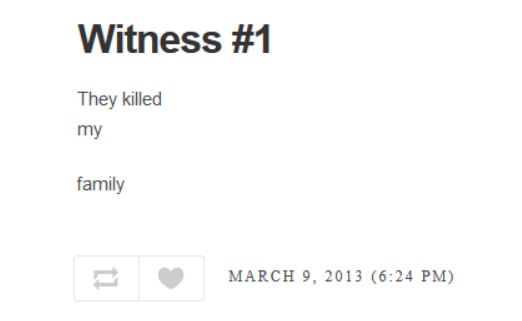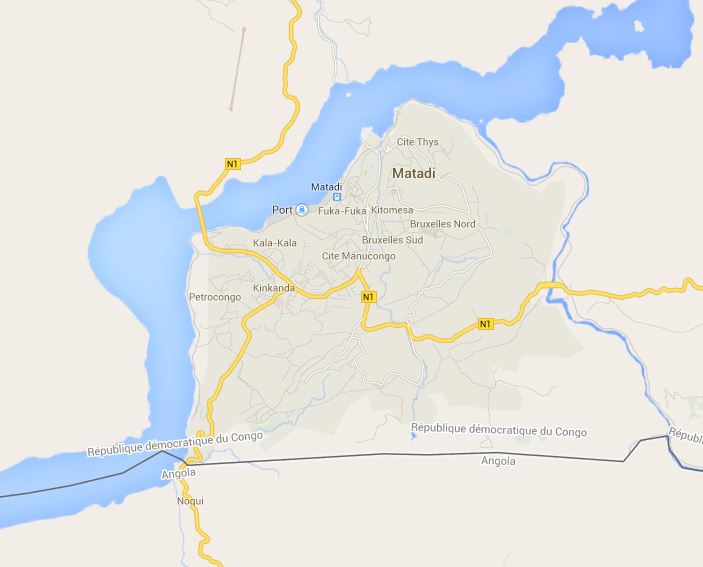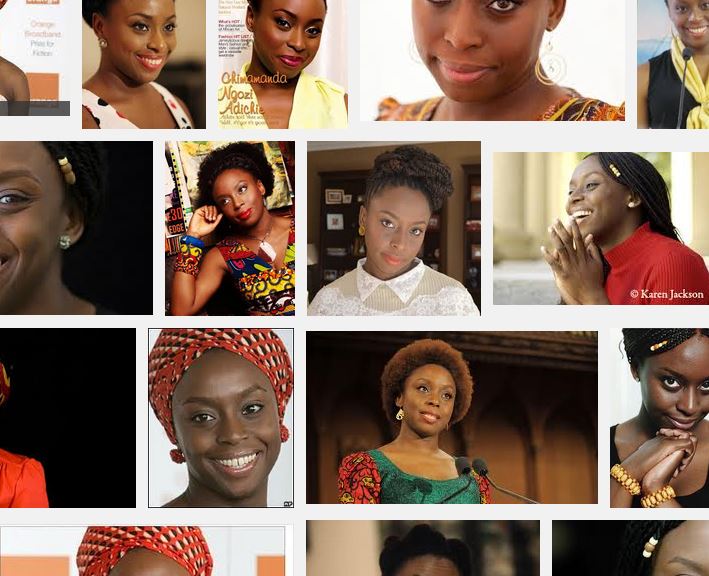"It Continues Not To End": Time, Poetry, and the ICC Witness Project
The openness of the form reflects the refusal of the wound to close on its own: each poem is an instant in time, but they do not resolve into a story, only an interminable unresolved and plural present.
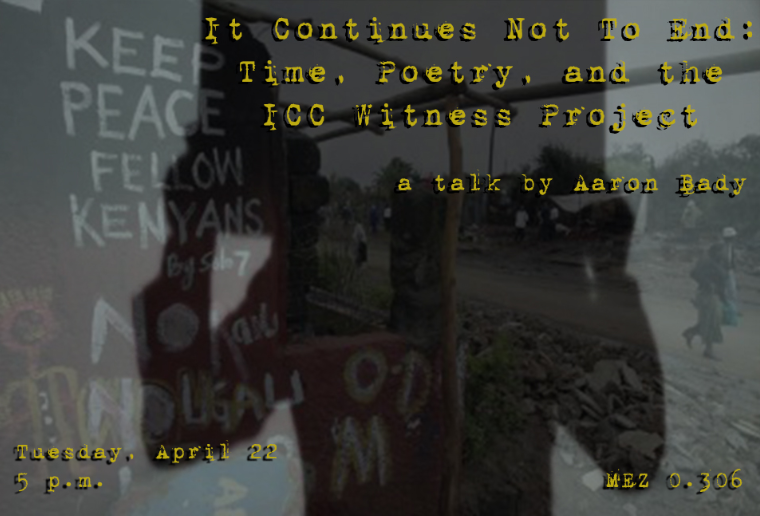
This is the (mostly unchanged) text of a talk I delivered at UT Austin, last Tuesday. Today, I’m going to talk about the ICC Witness Project. This is an archive of poems written and posted to the internet over the last year, starting last March; there are over 150 of them now, with 144 titled as numbered witnesses— “Witness #1, Witness #2.” The “ICC” refers to the “International Criminal Court,” where a prosecution is currently pending against the sitting president and deputy president of Kenya, Uhuru Kenyatta and William Ruto, for crimes against humanity committed in the Post-Election Violence of 2007, three months of wide-spread killing and burning across the country, that took on ethnic and gendered overtones and left about 1500 people dead, perhaps a million displaced, and countless thousands sexually assaulted. A church that was burned in Eldoret… Read More...


